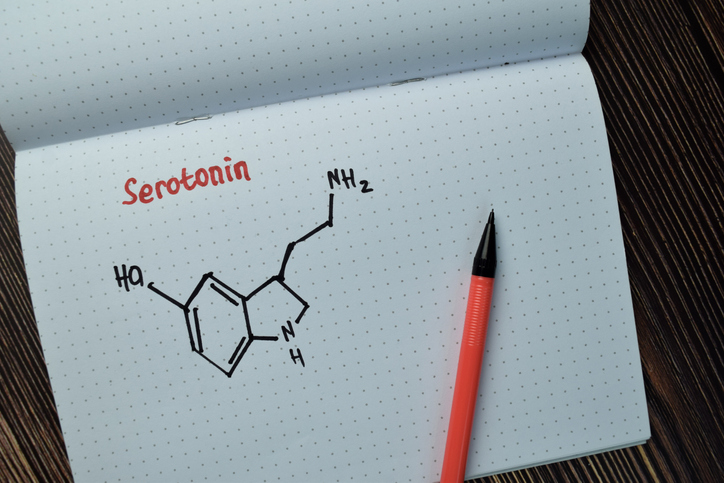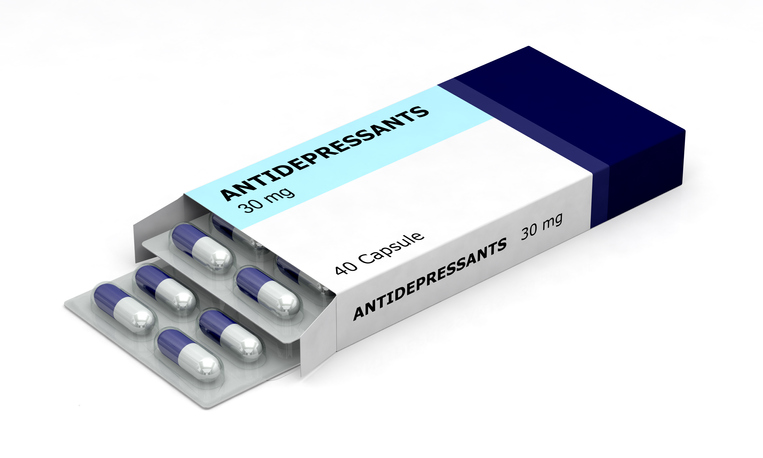Treatments
What Is Serotonin Syndrome?

What is serotonin?
Serotonin is a substance naturally produced in the body. It works as a neurotransmitter, sending signals between nerve cells. Although it is best known for its role in the brain, serotonin helps with various functions throughout the body:
- Digestion
- Mood regulation
- Sleep-wake cycles
- Blood flow
- Libido or sexual interest
- Temperature control
- Respiration
What is serotonin syndrome?
Serotonin syndrome is a serious and potentially dangerous negative/adverse drug reaction. It occurs when too much serotonin accumulates in the body. It most commonly occurs when increasing the dose of a serotonin-level-affecting medication or starting a new serotonin-level-affecting medication.
Symptoms
Symptoms of serotonin syndrome typically start within hours of increasing a drug’s dose or starting a new medication. Symptoms of serotonin syndrome include the following:
- Agitation, anxiety, restlessness or irritability
- Confusion or disorientation
- Rapid heart rate (tachycardia)
- High blood pressure
- Muscle spasms, muscle rigidity, tremors, or loss of muscle coordination
- Shivering or goosebumps
- Heavy sweating
- Headaches
- Nausea
- Diarrhea
- Hallucinations
- Dilated pupils
- Overactive reflexes (hyperreflexia)
Signs of life-threatening serotonin syndrome include, but are not limited to, the following:
- High fever
- Seizures
- Irregular heartbeat
- Unresponsiveness
- Unconsciousness
- Coma
Causes
Serotonin syndrome typically occurs as the result of taking several medications that affect serotonin levels in the body.
Medications that affect serotonin levels include the following:
- Antidepressants, such as selective serotonin reuptake inhibitors (SSRIs), serotonin and norepinephrine reuptake inhibitors (SNRIs), tricyclic antidepressants, monoamine oxidase inhibitors (MAOIs), and bupropion
- Migraine medications, such as triptans, carbamazepine, and valproic acid
- Opioid pain medications, such as codeine, hydrocodone, oxycodone, tramadol, meperidine and fentanyl
- Lithium (a mood stabilizer)
- Over-the-counter cough and cold medications that contain dextromethorphan
- Anti-nausea medications, such as granisetron, metoclopramide, droperidol and ondansetron
- Linezolid (an antibiotic)
- Ritonavir (an antiretroviral medication)
- Herbal supplements, such as St. John's wort, nutmeg and ginseng
- Illicit drugs, such as LSD, MDMA (ecstasy), cocaine and amphetamines
Risk factors
Factors that increase the risk of developing serotonin syndrome include the following:
- Starting or increasing the dose of a medication(s) known to increase serotonin
- Taking multiple medications or drugs known to increase serotonin
- Taking herbal supplements that increase serotonin
- Taking illicit drugs that increase serotonin
Treatment
The symptoms of serotonin syndrome range from mild to life-threatening. If serotonin syndrome is suspected, consulting a health care provider or seeking emergency medical treatment is advised. Medical supervision or hospitalization may be needed for 24 hours.
Depending on the severity of serotonin syndrome, treatments may include the following:
- Discontinuation of the medications that caused the syndrome
- Administration of IV fluids
- Administration of medication, such as cyproheptadine, that blocks the activity of serotonin receptors
- Administration of medication, such as a benzodiazepine, to reduce agitation, seizure-like movements, and muscle stiffness
Prevention
The majority of cases of serotonin syndrome can be prevented. Individuals should ensure that their health care providers, including their pharmacist, are aware of all prescription medications, over-the-counter medications, and herbal supplements that they are taking in order to ensure their safety.



















